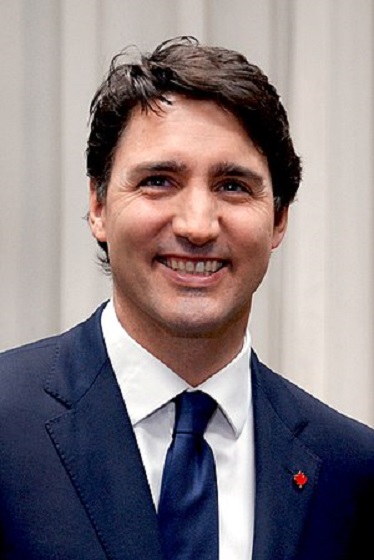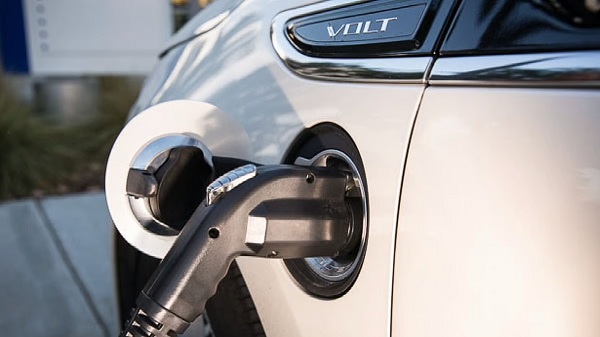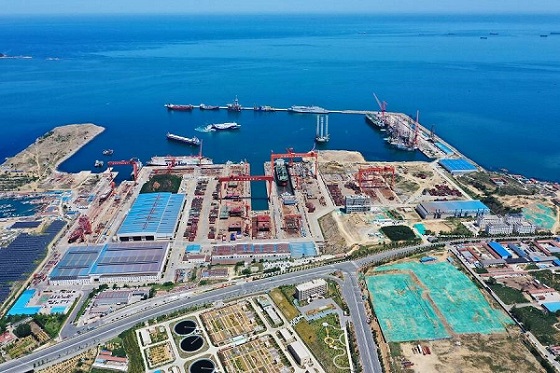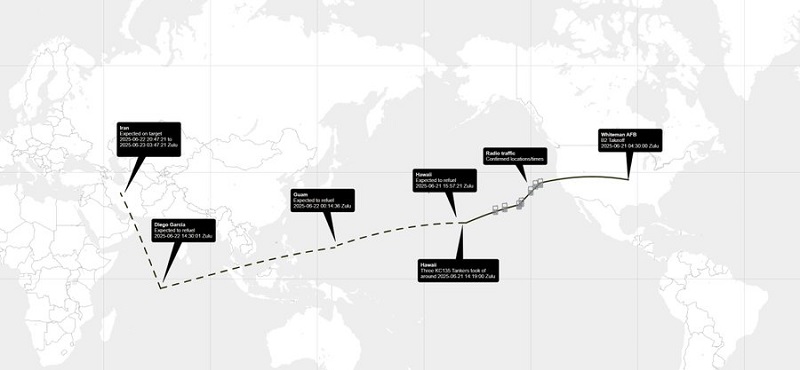Opinion
The Climate-Alarmist Movement Has A Big PR Problem On Its Hands

 From the Daily Caller News Foundation
From the Daily Caller News Foundation
By David Blackmon
The whole “net-zero by 2050” narrative that cranked up in earnest in early 2021 has now become a public relations problem for the climate-alarm movement, according to a senior official at the United Nations.
Chris Stark, the outgoing chief executive of the UN’s Climate Change Committee (CCC), said as reported by the Guardian: “Net zero has definitely become a slogan that I feel occasionally is now unhelpful, because it’s so associated with the campaigns against it. That wasn’t something I expected.”
As seems to always be the case among the globalist sponsors of this government-subsidized rush to saddle the world with unreliable power grids and short-range electric cars, the conversation among the leaders of the movement immediately moves not to perhaps reconsidering the approach to address public concerns, but to rejiggering the narrative. Stark recommends shifting the label and the narrative to more of a focus on investment and how renewables and EVs somehow improve energy security.
“We are talking about cleaning up the economy and making it more productive – you can call that anything you like,” he said.
That would be a neat trick, inventing a narrative about benefits that don’t really exist. But it wouldn’t be the first time it’s been tried.
At last November’s COP 28 conference, UN Secretary General Antonio Guterres floated the term “climate collapse” as a new name for what the climate alarmists have successively called “global warming,” “climate change,” “climate crisis,” and “climate emergency.” Each successive label has been replaced as its cache’ with the public has faded; and apparently the whole “climate emergency” has lost its punch, so another fright narrative must be concocted.
The trouble there, of course, is that the climate is not collapsing. But then again, it isn’t in any sort of an emergency, either, or a crisis.
The climate is always changing, though, so at least the long-abandoned “climate change” label had the ring of truth to it. Maybe let’s go back to that and try to deal with something that is at least a real thing? But, no, that would cut down on the alarm and make it harder for political leaders to enact bad “solutions” and subsidize them with debt combined with skyrocketing utility bills for average citizens.
So, as Stark says, call it anything you want, just so long as it is alarming. Stark’s boss at the UN, Guterres, used the term “global boiling” to describe the current climate situation. So, maybe we change “net-zero by 2050” to “no bubbles by 2050.” That would at least have the advantage of some semblance of consistent thought.
A colleague suggested that we simply change the problematic label to “Stone Age,” since that is where we are heading if the alarmists continue to get their way. She has a point.
The most amazing thing about Stark’s concerns is that anyone is really surprised that “net-zero by 2050” has become a problematic term. How else would officials at the UN and other governments expect the public to react to what has become the umbrella label for a set of authoritarian government actions that have destabilized power grids, caused the cost of living to rise rapidly, reduced consumer choice, and begun to rob citizens in nominally “free” countries of their individual rights?
The central problem today with this climate change narrative is that it has gone on for so long that is has become a bit of a joke with an increasingly aware and skeptical public. And the reason they’re skeptical is not due to any disbelief in science, as the alarmists invariably claim, but because they have seen nothing but bad outcomes and personal deprivations from the alleged solutions being subsidized into existence.
Stark assures us that, “the lifestyle change that goes with this is not enormous at all,” but painful results to date tell another story.
If Stark were truly thoughtful and serious about wanting to deal with the increasing unpopularity of the “net-zero by 2050” construct, he would suggest that everyone take a step back and re-evaluate the nature and effectiveness of the solutions being pushed.
By merely advocating for the concoction of yet another shift in the narrative, a troublesome lack of sincerity is laid bare.
David Blackmon is an energy writer and consultant based in Texas. He spent 40 years in the oil and gas business, where he specialized in public policy and communications.
COVID-19
Ontario man launches new challenge against province’s latest attempt to ban free expression on roadside billboards

The Justice Centre for Constitutional Freedoms announces that Ontario resident George Katerberg has launched a legal challenge against the Ontario Ministry of Transportation for banning roadside billboards with social or political messages. Mr. Katerberg believes that the Ministry’s policies go too far and undermine the freedom of expression of all Ontarians.
This case goes back to March 2024, when Mr. Katerberg, a retired HVAC technician, rented a billboard on Highway 17 near Thessalon, Ontario, that featured images of public health officials and politicians alongside a message critical of their statements about vaccines.
After the Ministry rejected his proposed billboard several times on the grounds it promoted hatred, a constitutional challenge was launched with lawyers provided by the Justice Centre. Mr. Katerberg’s lawyers argued that the Ministry’s position was unreasonable, and that it did not balance Charter rights with the purposes of relevant legislation.
The Ministry later admitted that the sign did not violate hate speech guidelines and agreed to reconsider erecting the billboard.
However, in April 2025, the Ministry quietly amended its policy manual to restrict signs along “bush highways” to those only promoting goods, services, or authorized community events.
The new guidelines are sweeping and comprehensive, barring any messaging that the Ministry claims could “demean, denigrate, or disparage one or more identifiable persons, groups of persons, firms, organizations, industrial or commercial activities, professions, entities, products or services…”
Relying on this new policy, the Ministry once again denied Mr. Katerberg’s revised billboard.
Constitutional lawyer Chris Fleury explains, “By amending the Highway Corridor Management Manual to effectively prohibit signage that promotes political and social causes, the Ministry of Transportation has turned Mr. Katerberg’s fight to raise his sign into a fight on behalf of all Ontarians who wish to express support for a political or social cause.”
No date has yet been assigned for a hearing on this matter.
Business
Federal government should finally cut Trudeau-era red tape

From the Fraser Institute
If Prime Minister Carney really wants to show he’s committed to “Building Canada” he’d ceremoniously defenestrate Bill C-48, scap the cap on Canadian Oil and Gas related greehhouse gas emissions, and ax the so-called Clean Electricity Regulations
As pretty much everyone knows, Canada has a building problem. Whether it’s provincial building of housing or infrastructure, or national building of highways, pipelines or energy production facilities, Canada can seemingly not get things built no matter how many companies and investors propose projects (or how many newspaper opinion columns or public opinion polls shows that people want things built).
The Carney government appears to recognize this problem and recently introduced Bill C-5. Of course, appearances can be deceiving. Superficially, a lot of what’s in the proposed bill sounds good: facilitating free trade and labour mobility inter-provincially, and ostensibly streamlining government’s regulatory powers to facilitate the timely building of projects deemed to be in Canada’s national interests. Who could be against that?
Per the government, the “Bill seeks to get projects in the national interest built by focusing on a small number of executable projects and shifting the focus of federal reviews from ‘whether’ to build these projects to ‘how’ to best advance them.” Again, looks great, but even a cursory reading by a legal layman reveals the fact that, in reality, little has changed in regard to the approval of major building projects in Canada. Just as it is now, under the new regime, the prime minister’s office (and designees elsewhere in government) ultimately have carte blanche in deciding whether or not projects of significance can be built in Canada, under what timeline, and based on whatever criteria they deem appropriate.
All that is better than nothing, of course, but words (particularly political words) are cheap and actions more valuable. If Prime Minister Carney really wants to show he’s committed to “Building Canada” he’d ceremoniously defenestrate Bill C-48 (a.k.a. the “Tanker Ban Bill”), which came into effect last year under the Trudeau government and changed tanker regulations off British Columbia’s northern coast, torpedoing any prospects of building oil export pipelines on Canada’s west coast.
He could also scrap the cap on Canadian oil and gas-related greenhouse gas emissions (introduced by the Trudeau government in 2024) and regulations (also introduced in 2024) for methane emissions in the oil and gas sector, both of which will almost inevitably raise costs and curtail production.
Finally, the prime minister could ax the so-called “Clean Electricity Regulations” that will likely drive electricity rates through the roof while ushering in an age of less-reliable electricity supply and less building of conventional energy-generation from natural gas, a fuel far more reliable than Canada’s fickle winds and often-tepid sunlight. By driving up energy costs across Canada and through the entire chain of production and service economies, these regulations (again, enacted by the Trudeau government) will make it more expensive to build anything anywhere in Canada.
Prime Minister Carney has made some nice noises seemingly recognizing that Canada has a building problem, particularly with regard to energy projects, and Bill C-5 makes equally nice (yet ill-defined) noises about regulatory reform in the energy and natural resource sectors. But Canada doesn’t have a shortage of nebulous government pronouncements; it has an overdose of regulatory restrictions preventing building in Canada. He should show real seriousness and eliminate the raft of Trudeau-era red tape stifling growth and development in Canada.
And sooner is better than later. Canada’s biggest economic competitors (not only the United States) are not sitting on their red-taped hands watching their economies decline.
-

 Bjorn Lomborg2 days ago
Bjorn Lomborg2 days agoThe Physics Behind The Spanish Blackout
-

 Alberta2 days ago
Alberta2 days agoSo Alberta, what’s next?
-

 Business2 days ago
Business2 days agoWhile China Hacks Canada, B.C. Sends Them a Billion-Dollar Ship Building Contract
-

 COVID-1915 hours ago
COVID-1915 hours agoOntario man launches new challenge against province’s latest attempt to ban free expression on roadside billboards
-

 Business16 hours ago
Business16 hours agoFederal government should finally cut Trudeau-era red tape
-

 Health2 days ago
Health2 days ago‘Transgender’ males have 51% higher death rate than general population: study
-

 Business19 hours ago
Business19 hours agoTaxpayers Federation presents Teddy Waste Awards for worst government waste
-

 Alberta15 hours ago
Alberta15 hours agoCanadian Oil Sands Production Expected to Reach All-time Highs this Year Despite Lower Oil Prices




